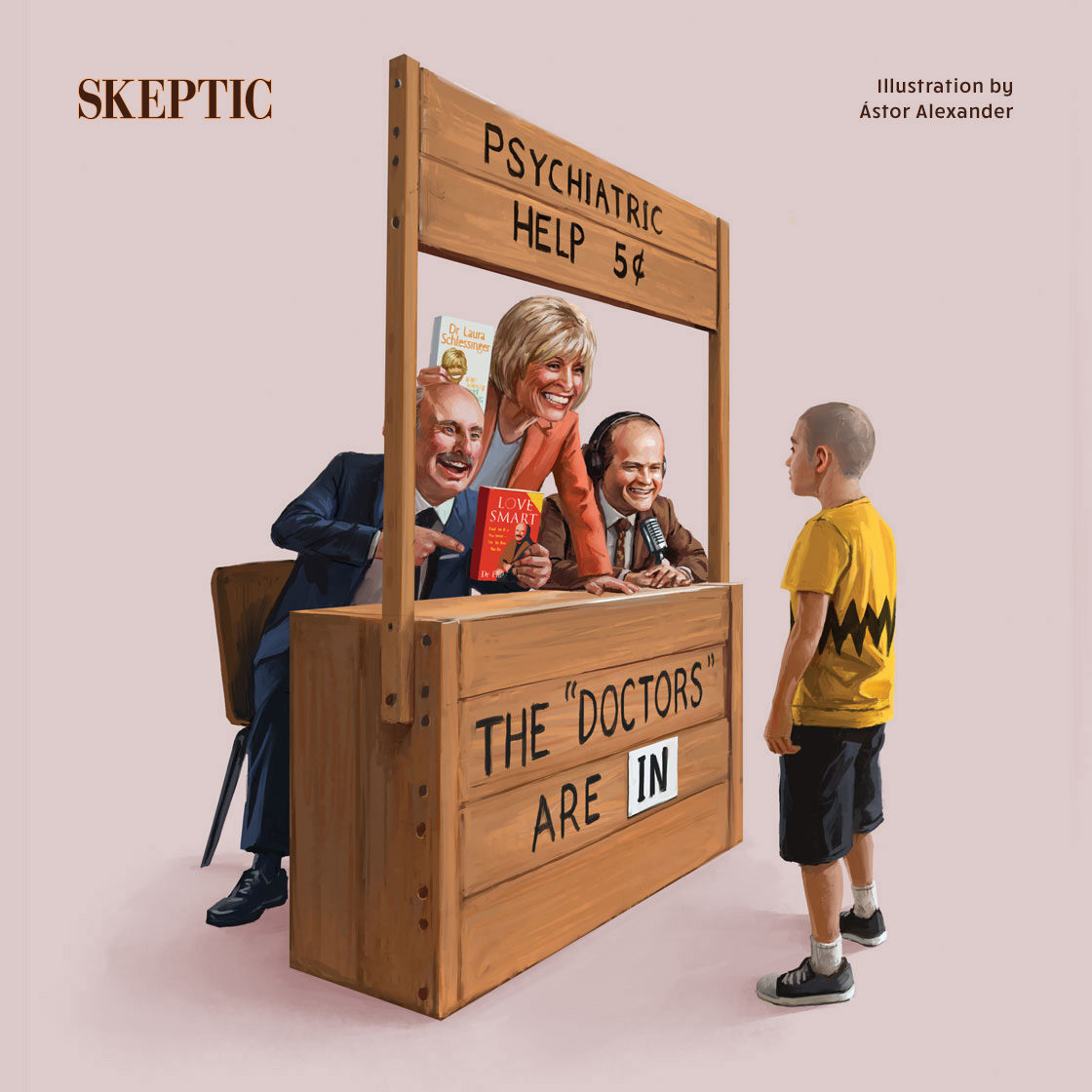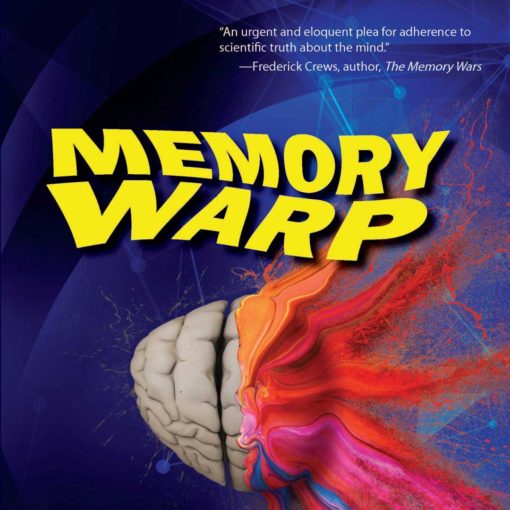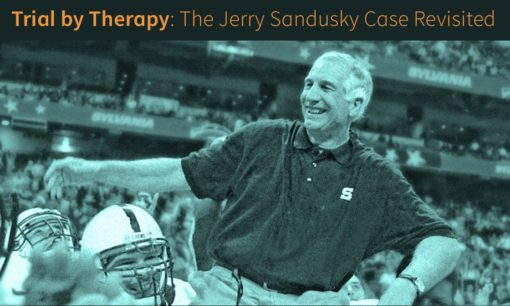recovered memories

Scientifically trained psychologists and social scientists have long been skeptical of clinical psychotherapy techniques because they are so dependent on anecdotes instead of data. In response, clinicians with scientific training have developed data-based techniques, like Cognitive Behavior Therapy. But these new techniques have not trickled down to pop psychologists like Laura Schlessinger (Dr. Laura) and Phil McGraw (Dr. Phil), along with self-help gurus like Tony Robbins. This article critiques these pop psych nostrums.

Are you old enough to have a memory of the memory wars that were sparked by a debate that began more than 30 years ago? In this column from Skeptic magazine 24.3 (2019), Carol Tavris expounds on the persistence of belief in recovered memories.
In Science Salon # 87 Michael Shermer speaks with Douglas Murray about his new book The Madness of Crowds on sexuality, gender, technology and race playing out in our workplaces, universities, schools and homes in the names of social justice, identity politics and intersectionality.

Mario E. Herrera and Lawrence Patihis review Mark Pendergrast’s new book: Memory Warp: How the Myth of Repressed Memory Arose and Refuses to Die.
In this week’s eSkeptic, Mario E. Herrera and Lawrence Patihis review Mark Pendergrast’s new book: Memory Warp: How the Myth of Repressed Memory Arose and Refuses to Die.

Frederick Crews reviews Mark Pendergrast’s book The Most Hated Man in America: Jerry Sandusky and the Rush to Judgment: a sustained, comprehensive case—based on detailed evidence and reasoning—that Jerry Sandusky (found guilty on 45 counts of child molestation) was, in fact, blameless.
In this week’s eSkeptic, Frederick Crews reviews Mark Pendergrast’s book The Most Hated Man in America: Jerry Sandusky and the Rush to Judgment: a sustained, comprehensive case—based on detailed evidence and reasoning—that Jerry Sandusky (found guilty on 45 counts of child molestation) was, in fact, blameless.
In this week’s eSkeptic, in the wake of passionate and polarized commentary following Dylan Farrow’s recent allegations that Woody Allen sexually abused her when she was 7 years old, social psychologist Dr. Carol Tavris discusses how the science of memory may help guide how we think about cases like this.
In this week’s eSkeptic, we present Daniel Greenburg’s article from the archives of Skeptic magazine Volume 11, Number 3 in which he discusses how psychological research shows that our most powerful memories may be untrustworthy.












